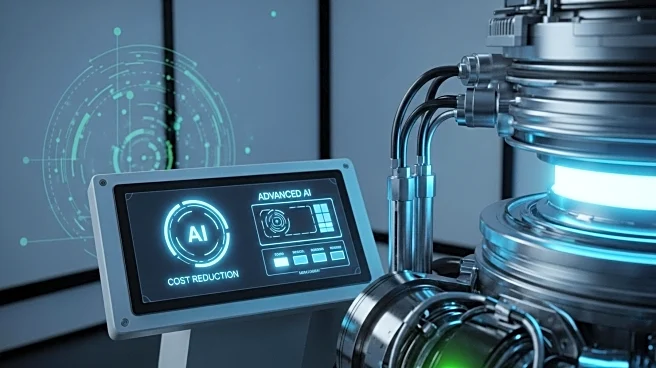What is the story about?
What's Happening?
Princeton University researchers have developed an artificial intelligence (AI) system called Diag2Diag, which enhances the monitoring and control of plasma in fusion systems. This AI can generate synthetic data that aligns with real-world data, providing more detailed information than traditional sensors. The research, published in Nature Communications, was conducted in collaboration with the U.S. Department of Energy's Princeton Plasma Physics Laboratory and other institutions. The AI aims to improve the robustness and reduce the complexity and cost of future fusion systems by filling in missing data from sensors. This development could also have applications in other fields such as spacecraft and robotic surgery.
Why It's Important?
The development of Diag2Diag is significant as it could lead to more economical and reliable fusion systems, which are crucial for fusion energy to become a major part of the U.S. power system. By reducing the need for numerous diagnostics, the AI helps make fusion reactors more compact and reliable, lowering maintenance costs and freeing up space inside the machines. This advancement supports the U.S. goal of achieving a sustainable and economical fusion energy source, potentially transforming the energy landscape by providing a clean and virtually limitless power supply.
What's Next?
The research team plans to expand the scope of Diag2Diag, with interest from other researchers in applying the AI to different fusion diagnostics and fields where diagnostic data is limited. The AI's ability to provide detailed data could further support theories on controlling plasma instabilities, such as edge-localized modes (ELMs), which are crucial for the development of commercial fusion reactors. Continued research and application of Diag2Diag could accelerate the transition from experimental fusion devices to commercial energy systems.
Beyond the Headlines
Diag2Diag's ability to enhance data from fusion systems could have broader implications for other critical environments where sensor data is crucial. By improving data reliability and detail, the AI could enhance safety and efficiency in fields like aerospace and medical technology. This development also highlights the growing role of AI in scientific research and its potential to solve complex problems across various industries.
















